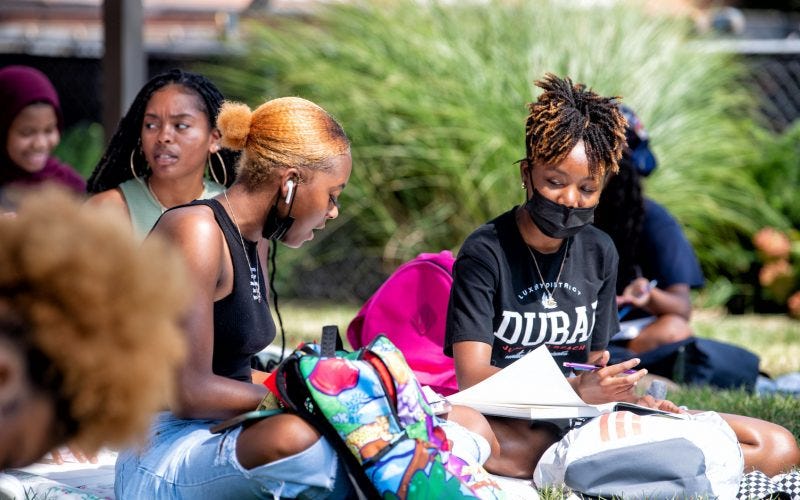Do you know any HBCU journalists who want a paid internship?
One of the things I always dreamed about doing with the HBCU Digest was making enough money to pay students as writers and reporters. I never made it happen, but I’m glad that the dream is now one I can support through a non-profit journalism project managed by Open Campus Media.
The HBCU Student Journalism Network will create a robust portal for students working their way to reporting careers, giving them a chance to cover higher education in their local areas. The hours that students will commit to this project will not interfere with their studies, will generate valuable clips for their professional portfolios, and most of all, provide an earned monthly fellowship stipend.
Here is more about the program.
Up to six paid reporting fellows will be selected for the inaugural class starting in January 2023. These current HBCU students will focus on covering their campuses for regional and national audiences while exploring the trends affecting the entire sector.
“Historically Black colleges play critical roles in students’ lives and in American society, but few journalists focus on how well these important players are fulfilling their public missions,” said Sara Hebel, co-founder and editor-in-chief of Open Campus. “We’re excited to work with student fellows to provide knowing, on-the-ground coverage that can help inform and advance the national conversation.”
Students with some journalism experience and an interest in writing about HBCUs for a national audience are encouraged to apply. Fellows will receive stipends of $1,200 per month for 10-15 hours of work each week. More details on applying for the fellowship.
We are looking for students at HBCUs throughout the country to jumpstart a network that provides a strong view of the Black college experience through many lenses. Schools that are small, private, or rural have different existences from those that are large, public, and metropolitan. We want to examine how politics, finances, culture, and industry intersect to impact these schools and how the general public views them.
If we can improve coverage of HBCUs, we can improve the public understanding of these schools. Students, faculty, and alumni would be better positioned to question when and why things go wrong with these institutions and are more informed to help them thrive.
I’m hoping that we get more applicants from a range of schools. So far, the students at Morehouse, FAMU, and Prairie View are crowding the inboxes on applications. If you know an HBCU student or a faculty member with connections to promising journalists, tell them to apply.

